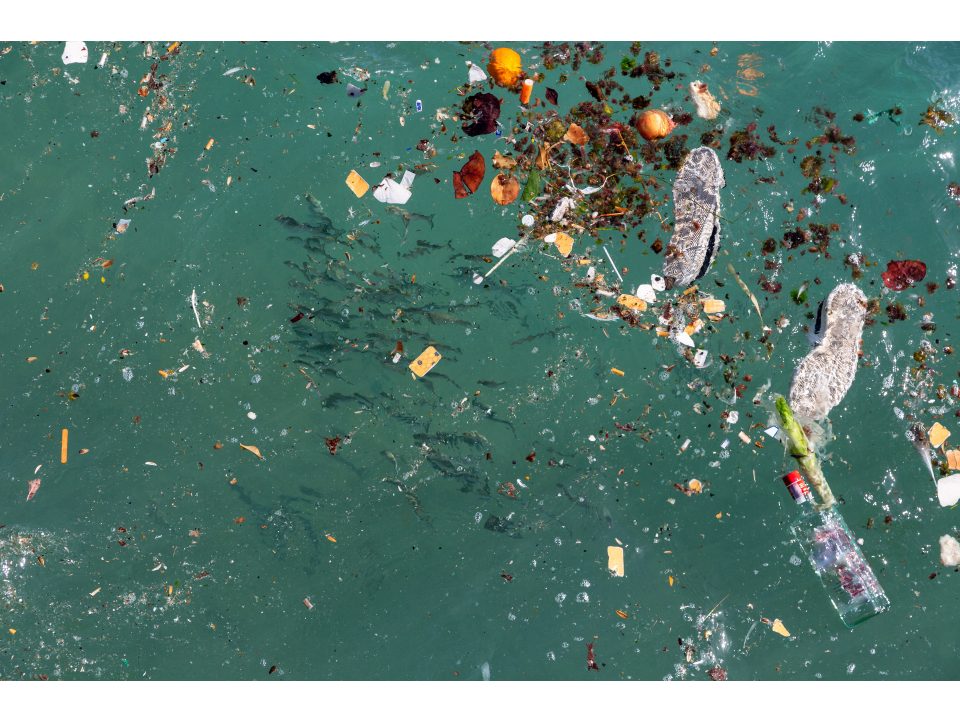Discover the content of the session: "Marine Litter: Solutions for Monitoring, Mitigation and Prevention"
- While quantitative information on production and use of plastics is to some extent available, the amount and fate of plastics discarded or leaked into the environment is highly uncertain. In particular, knowledge of how much plastics, at different scales down to micro and nano levels, reaches the ocean and the pathways and fate of such plastic in the ocean remain poorly known.
A focus is needed on how science and technology could quantify the pervasiveness of marine pollution and facilitate an understanding of the mitigating impact of reducing the stock of plastics in the ocean. The goals for meeting such a challenge go through the determination of a strategy for monitoring marine litter in the ocean and develop solutions for addressing the problem.
The session will be divided in four parts. The oral presentations are set for 15’, and the posters’ ones (magenta highlighted) for 10 minutes, in order to let rooms for discussions. The posters presentation will be interspersed with the oral ones for giving more visibility, and allowing more interactions.
Session organised by:
IEEE-OES and Laboratory for Ocean Physics and Satellite remote sensing (LOPS) (France)
Last update: June 27th
The session on Marine litter and Marine Debris is focused on solutions. Indeed, while quantitative information on production and use of plastics is to some extent available, the amount and fate of plastics discarded or leaked into the environment is highly uncertain.
Programme
[See also: https://www.gstss.org/2022_SeaTech/]
Tuesday 27th September - morning
09.00am-10.30am
PART a: knowing where and how much
- Distribution of marine plastics in surface waters of Northern Indian Ocean
Janakiram Reddy(1), Keerthivasan Ramasamy(1), Janani R(1), M V Martin(1), Ramasundaram Subramanian(1), Latha Ganesan(1), and Venkatesan Ramasamy(1)
(1) National Institute of Ocean Technology, India
- Tools for the monitoring of micro and macro plastics at sea
Marc Pavec(68), Sébastien Smet(68), and Fanny Chenillat(68)
(68) Actimar, France
- WERA HF Radar to support monitoring of marine litter and pollutants
Roberto Gomez(69), and Sebastien Smet(68)
(68) Actimar, France
(69) Helzel Messtechnik GmbH, Germany
- [POSTER] Remote Sensing Spectral Visibility of Plastics under laboratory conditions
James Delaney(81)(111)
(81) University of Plymouth, United Kingdom
(111) ARGANS Ltd, United Kingdom
- Towards the use of the giant clam T.maxima, as a biological integrator of environmental contamination in French Polynesia
Irène Godéré(8), Tiare Belamy(8), Jean-Claude Gaertner(10), Magalie Baudrimont(71), and Nabila Gaertner-Mazouni(8)
(8) Université de la Polynésie française, Polynésie française, France
(10) Institut de Recherche pour le Développement, UMR 241 EIO, Polynésie française, France
(71) Université de Bordeaux, UMR 5805 EPOC, France
11.00am-12.15pm
PART b: Where does it come from?
- Quantifying the Use Chains of Plastics and the Sources of Plastic in the Ocean
Hans-Peter Plag(72)(73), and Daniel Martin(72)
(72) MARI Old Dominion University, USA
(73) Tiwah UG, Germany
- [POSTER] Fish & Click: how participatory science helps to map and inventory lost fishing gear
Marie Morfin(16), Fabien Morandeau(16), Sonia Méhault(16), and Dorothée Kopp(16)
(16) Ifremer, France
- Towards a new decision support tool for marine litter monitoring in the eastern English Channel
Sloane Bertin(77), Alexei Sentchev(77), and Elena Alekseenko(77)
(77) Laboratoire d’Océanologie et de Géosciences (LOG), UMR 8187, CNRS, ULCO, ULILLE, IRD, France
- Deep Learning approaches to simulate Lagrangian particle dynamics at sea surface
Daria Botvynko(74), Carlos Granero-Belinchon(12), Abdesslam Benzinou(74), Ronan Fablet(12)(14), and Simon van Gennip(76)
(74) ENIB, Lab-STICC, UMR CNRS 6285, France
(14) INRIA team Odyssey, France
(12) IMT Atlantique, Lab-STICC, UMR CNRS 6285, France
(76) Mercator Ocean International, Departement d'océanographie operationnelle, France
- [POSTER] Monitoring and modelling the circulation of marine debris in Indonesia
Christophe Maes(18), Tonia Capuano(106), Delphine Dobler(18), Claire Dufau(17), Riza Farhan(107), Olivia Fauny(17), Budhi Gunadharma Gautama(107), Marine Herrmann(106), Ariane Koch-Larrouy(106), Marc Lucas(17), Elodie Martinez(18), Rinny Rahmania(107), Jean-Baptiste Voisin(17), Emilie Strady(108), Yannis Cuypers(109), and Edmond Dounias(110)
(17) CLS, France
(18) LOPS-IRD, France
(106) LEGOS-IRD, France
(107) KKP BRIN, Indonesia
(108) MIO-IRD, France
(109) Sorbonne University, France
(110) IRD, France
Tuesday 27th September - afternoon
03.15pm-04.45pm
PART c: Preventing and Reducing
- Deep learning-based approaches to detect floating marine debris for reducing marine pollution
Ramnath Prabhu Bam(70), Rajesh Prabhu Gaonkar(70), Clint Pazhayidam George(70), Akanksha Mishra(70), and Pavit Samra(70)
(70) Indian Institute of Technology Goa, India
- Preventing Plastic Pollution – a catchment based approach to reducing the stock of plastics in the ocean
John Iwan Jones(60), Gaël Durand(61), Gloria Francalanci(62), Rozenn Lhermitte(63), Kim Goonesekera(64), Oumayma Airiau(65), Gwen Mainwaring(66), and Marie-Amélie Neollier(67)
and the Preventing Plastic Pollution Consortium
(60) Queen Mary University of London, United Kingdom
(61) Labocea, France
(62) South East Rivers Trust, United Kingdom
(63) Établissement public de gestion et d'aménagement de la baie de Douarnenez, France
(64) Environment Agency, United Kingdom
(65) Brest métropole, France
(66) the Rivers Trust, United Kingdom
(67) Parc naturel marin d’Iroise, France
- Managing marine pollution by using Artificial Intelligence
Nitin Agarwala(78)
(78) National Maritime Foundation, India
- An agent-based modelling approach for maritime plastic recovery optimization
Loic Salmon(32), and Thierry Le Pors(32)
(32) Isen Yncréa Ouest, France
05.30pm-06.30pm
PART d: Panel session on Communication and Decision support
- Towards Mitigation of Marine Litter: Increasing Social Capital Through an Ecosystem of Virtual Community Centers for Marine Litter
Hans-Peter Plag(72)(73)
(72) MARI Old Dominion University, USA
(73) Tiwah UG, Germany
- [POSTER] Environmental Stewardship of the Data Buoy Cooperation Panel
Karen Grissom(103), Boris Kelly-Gerreyn(104), and Long Jiang(105)
(103) National Data Buoy Center, USA
(104) Bureau of Meteorology, Australia
(105) OceanOPS, France
- Distribution of marine plastics in surface waters of Northern Indian Ocean







